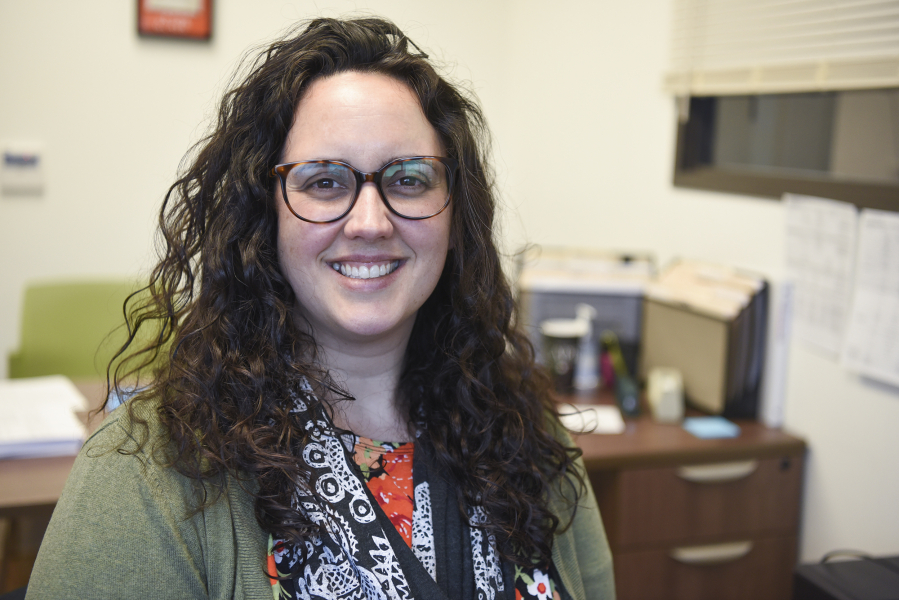Olivia Resnick recently took over as Share’s Housing First director, a role that includes administering Lincoln Place. She discussed her background and ideas for the Housing First program during an interview in her office on the first floor of Lincoln Place. Her experience includes working at the local Council for the Homeless and the Washington, D.C.-based nonprofit Friendship Place, which currently offers permanent supportive housing to hundreds of people at a handful of facilities in that area.
In December, Resnick started shadowing her predecessor, Katherine Garrett, who retired from Share, and officially began her new role as director on Jan. 1.
The following Q&A with Resnick was edited for brevity and clarity.
What are your responsibilities as Housing First director?
Resnick: I oversee four programs: the day center, Lincoln Place, our scattered site Housing First program and also outreach. So, I create programming and structure and oversee about 15 staff members throughout all of the programs.
What were you doing before you started working at Share?
I was working at the Council for the Homeless. I directed and coordinated assessments for the Housing Solutions Center. I was in that role for about two years. I started working in homelessness in about 2008.
What did you glean about Housing First from your experience on the East Coast that you’re bringing to this new role?
That if implemented successfully, it could be the answer to ending chronic homelessness in our community. It is dependent on robust programming. So, it’s not just about moving people into housing. It goes well beyond that. It’s about intensive case management and building a strong relationship with your client. Coming at it from a strengths perspective and using varying techniques from harm reduction to motivational interviewing to try to support folks to move toward change and independence and self sufficiency — I’ve seen a lot of success in that. So, I’m bringing that experience to transform the programming at Lincoln Place and our scattered site programs.
What brought you to the West Coast?
I went to school at The Evergreen State College for my undergraduate degree. I spent about eight years in Olympia and then I relocated back home to Washington D.C., worked, got my master’s degree. Then, I decided to come back to the Pacific Northwest, where it’s really beautiful and there are good people.
Do you have any specific goals for your first year as director?
For my scattered site and my Lincoln Place programming, it’s really important that we improve our retention rate within housing. I’m hoping to increase that to be at least 90 percent within the year. If we have evictions from Lincoln Place, my hope is that we can attempt to rehouse them in our other program. That’s really important to me. My other goal is just to improve programming by making sure that we have consistent and intensive case management and that we are linking our clients to as many wraparound services as possible. I guess one of my other overarching goals is to decrease our use of emergency services. By increasing case management and support and linking them to wraparound services like mental health supports, medical care, substance use supports, the money that we’re spending on our emergency services (ambulance, police services, hospitalizations) will decrease. Retention goes up and emergency services go down as people are transitioning into life within their home.
Are you going to make any changes to Lincoln Place or the scattered site program?
When I think about changes I don’t consider it overhauling, it’s just expanding on what already existed. We have case managers and client support specialists. My hope is that the staff are working together to come up with creative solutions to the challenges that our clients face, so we can have clients who are stabilizing in housing. Making sure that’s consistent is one of my goals here and making sure case management is happening within the home and it’s based on the clients’ needs. It’s been a year since people have moved into Lincoln Place, and the foundation has been set, so it’s a matter of just building upon what already exists.




